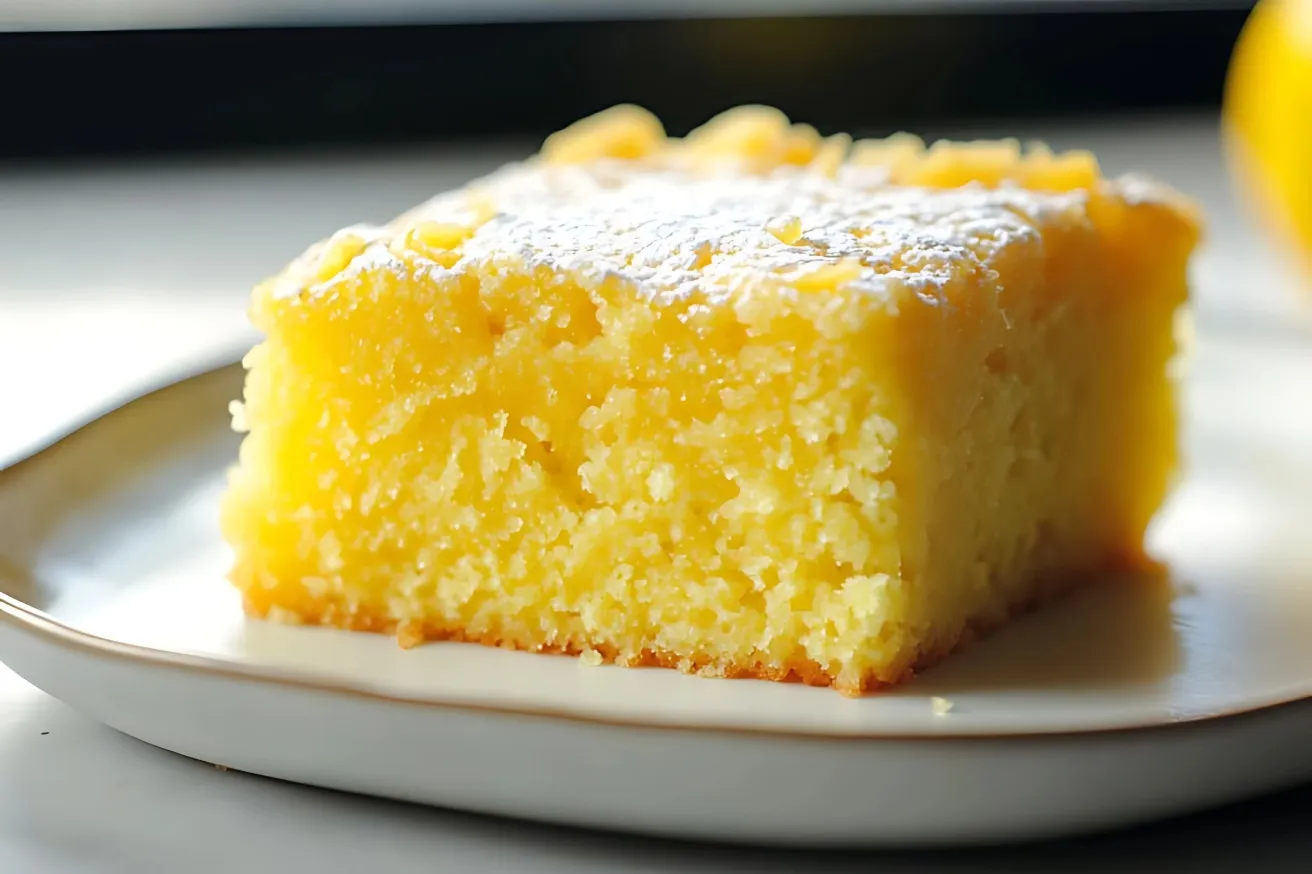Baking is my happy place, where I can be creative and feel comforted. I found a trick that makes my box cake mix special: adding lemon juice. This citrus flavor can turn your box cake mix into something truly magical.
Ever wondered how to spice up your box cake mix? Lemon juice might be the answer. It’s not just for a tangy taste. It makes your cake taste like it’s from a fancy bakery. Adding lemon juice can impress your family or make any occasion special.
Many people are hesitant to try new things with box cake mixes. But, a few tweaks can change everything. The right amount of lemon juice can improve your cake’s texture, moisture, and taste. It makes your cake feel homemade, not store-bought.
Key Takeaways
- Lemon juice can dramatically improve box cake mix flavor
- Adding citrus flavor is easier than you might think
- Proper measurement is crucial for best results
- Cake baking can be both simple and creative
- Experiment safely to discover your perfect cake recipe
Benefits of Adding Lemon Juice to Box Cake Mix
Turning a basic box cake mix into a masterpiece is simpler than you think. Lemon juice is a secret ingredient that can make a big difference. It helps you create tasty treats with ease.
Elevating Flavor Dynamics
Lemon juice adds a bright, zesty flavor to your cake. It cuts through artificial tastes, making it fresh and vibrant. Your cake will go from ordinary to amazing with just a little lemon.
- Adds complex citrus undertones
- Neutralizes overly sweet flavors
- Creates a more sophisticated taste experience
Improving Cake Texture and Moisture
Lemon juice does more than just add flavor. It also makes your cake moist and tender. It works with other ingredients to create a softer, more delicate dessert.
Natural Ingredient Advantages
Health-conscious bakers love using natural ingredients. Lemon juice is a great choice because it’s chemical-free. It’s a simple way to improve your cake’s taste and texture without adding artificial stuff.

- Reduces artificial flavor additives
- Introduces natural citrus elements
- Supports cleaner eating approaches
Can I Add Lemon Juice to My Box Cake Mix?
Yes, you can definitely add lemon juice to your box cake mix! It’s a simple trick to make an ordinary mix taste like homemade. This tweak can really boost your baking skills and make your dessert more tasty.
But remember, lemon juice can change how the cake turns. It’s acidic, which might affect how the cake rises and sets. Here are some important things to think about:
- Check the specific box mix instructions
- Use fresh lemon juice for the best flavor
- Measure carefully to avoid altering the cake’s texture
The success of your lemon cake recipe depends on the box mix you choose. Vanilla and white cake mixes usually work well with lemon juice. These mixes take the lemon flavor in nicely, making your cake zesty and moist, like homemade.
Start with a small amount of lemon juice and see how it goes. You want to add flavor without messing up the cake’s texture. With a bit of practice, you’ll get the hang of it.
Best Methods for Incorporating Lemon Juice in Cake Mix
Turning a simple box cake mix into a zesty treat needs careful thought. You must consider the right cake mix ratios and baking techniques. Adding lemon juice can make your cake truly special.
It’s important to know how to add lemon juice to your cake batter. This ensures your cake turns out just right. You need to get the lemon juice measurements right and mix it in the best way.
Proper Measurement Guidelines
Here are the key steps for adding lemon juice to your cake mix:
- For a standard 9-inch cake, use 2-3 tablespoons of fresh lemon juice
- Adjust the amount based on how strong you want the lemon flavor
- Lower the amount of other liquids to keep the cake mix ratios balanced
Mixing Techniques
Mixing your cake batter correctly is key. It prevents lumps and keeps the batter smooth. Focus on gentle mixing:
- Whisk the lemon juice with eggs before adding to the dry mix
- Fold in the liquid ingredients slowly into the cake mix
- Mix just until combined to avoid overmixing
Timing of Addition
When you add lemon juice affects your cake’s texture and taste. Add it early, but after mixing dry and wet ingredients. This spreads the lemon flavor evenly and keeps the cake’s structure intact.
Common Mistakes to Avoid When Adding Lemon Juice
Baking with lemon juice in box cake mixes can be tricky. Knowing common mistakes helps you make perfect cakes every time. Some lemon juice problems can ruin your baking if you’re not careful.
When adding lemon juice to your cake mix, watch out for these important tips:
- Acid Balance: Too much lemon juice can mess up the chemical reaction. This might make your cake dense or flat.
- Overpowering Flavor: Too much lemon juice can make your cake taste too sour.
- Liquid Ratio Disruption: Not adjusting other liquids can affect your cake’s moisture and texture.
Professional bakers suggest measuring lemon juice carefully. Start with 1-2 tablespoons per box mix. This helps avoid mistakes and keeps the flavor right.
Different cake mixes react differently to lemon juice. White and vanilla mixes take citrus flavors well. But chocolate or spice mixes might not. Always test a small batch to see how your mix reacts.
Knowing these common mistakes helps you add lemon juice right. This way, you can make delicious, perfectly textured cakes.
Adjusting Other Ingredients When Using Lemon Juice
Adding lemon juice to your box cake mix requires careful adjustments. The acidity of lemon juice can change the cake’s texture and taste.

Here are some key substitutions to make your cake delicious:
- Reduce liquid ingredients slightly to compensate for the added lemon juice
- Adjust sugar levels to balance the tartness of the citrus
- Potentially modify leavening agents to maintain the cake’s rise
Your strategy should aim for the right moisture and chemical balance. A careful approach to ingredient modification can turn a standard mix into a zesty, moist dessert.
Consider these specific adjustments:
- Liquid reduction: Remove 1-2 tablespoons of milk or water from the original recipe
- Sugar balance: Add 1-2 extra tablespoons of sugar to counteract lemon’s acidity
- Leavening check: Potentially increase baking powder by 1/4 teaspoon to support texture
Remember, each cake mix is unique. You might need to try different combinations to find the right balance. The aim is to boost flavor while keeping the cake’s structure and moisture intact.
Flavor Variations and Complementary Ingredients
Exploring lemon cake flavors is more than just adding juice. Your citrus cake recipes can become amazing with creative mix-ins and ingredients. Try these exciting ways to enhance your classic lemon bundt cake.
Zest is key for boosting citrus flavors. Lemon zest adds a concentrated taste that mix-ins can’t. Here are some great combinations:
- Poppy seeds for a subtle crunch and nutty undertone
- Fresh blueberries for bursts of fruity sweetness
- Sliced almonds for textural contrast
- Cream cheese swirls for rich complexity
Try extracts to take your cake’s taste to the next level. Orange extract pairs well with lemon for a deep citrus taste. You can also mix in lavender or vanilla to add to the lemon flavor.
When picking mix-ins, think about texture and moisture. Ingredients like Greek yogurt or sour cream add flavor and keep your cake moist and tender.
Conclusion
Adding lemon juice to your box cake mix can make a big difference. It turns an ordinary dessert into something special. By using the lemon cake tips we’ve shared, you can improve your box mix. This will make your homemade taste even better.
The secret to success is knowing the right techniques and amounts. Whether you want a cake with a tangy citrus flavor or one that’s moist and tender, lemon juice is the answer. It’s a simple way for home bakers to enhance their box mix creations.
Remember, baking is all about trying new things. Start with small changes and follow the advice we’ve given. Don’t be afraid to make the recipe your own. With time, you’ll get better at making cakes that taste homemade.
Your baking skills will keep getting better as you try new things. Every cake you make is a chance to learn and get better. Soon, you’ll be making desserts that impress everyone you share them with.
FAQ
How much lemon juice should I add to a box cake mix?
For a standard box cake mix, start with 2-3 tablespoons of fresh lemon juice. This adds a nice citrus taste without making the cake too acidic. Remember, you can always add more, but it’s harder to take it away.
Will adding lemon juice change the cake’s texture?
Yes, lemon juice can make your cake better. It adds moisture and makes the cake softer. It also helps break down gluten, making the cake lighter and more delicate.
Can I use bottled lemon juice instead of fresh?
Bottled lemon juice works too, but fresh is always better. Fresh lemon juice has a brighter, more real flavor. If you use bottled, make sure it’s 100% lemon juice without added stuff.
Do I need to adjust other ingredients when adding lemon juice?
You might need to tweak things a bit. You could reduce other liquids to keep the cake right. You might also add a bit more sugar to balance the tartness, especially with a lot of juice.
What types of box cake mixes work best with lemon juice?
Vanilla, white, and yellow cake mixes are great with lemon juice. They have a neutral taste that the lemon complements well. Chocolate or strong flavors might not mix as well.
Can lemon juice replace other liquids in the cake mix?
Lemon juice can be a part of the liquid, but not all of it. Aim to use 1/4 to 1/3 of the liquid called for in the mix. This keeps the cake moist and right.
Are there any risks to adding lemon juice to box cake mix?
Too much lemon juice can mess with the cake’s chemistry. It can affect the leavening agents, leading to a dense cake. Add it slowly and carefully.
How can I enhance the lemon flavor beyond just adding juice?
Adding lemon zest gives a stronger citrus taste. You can also make a lemon glaze or frosting. Try adding poppy seeds or blueberries to boost the lemon flavor in your cake.

